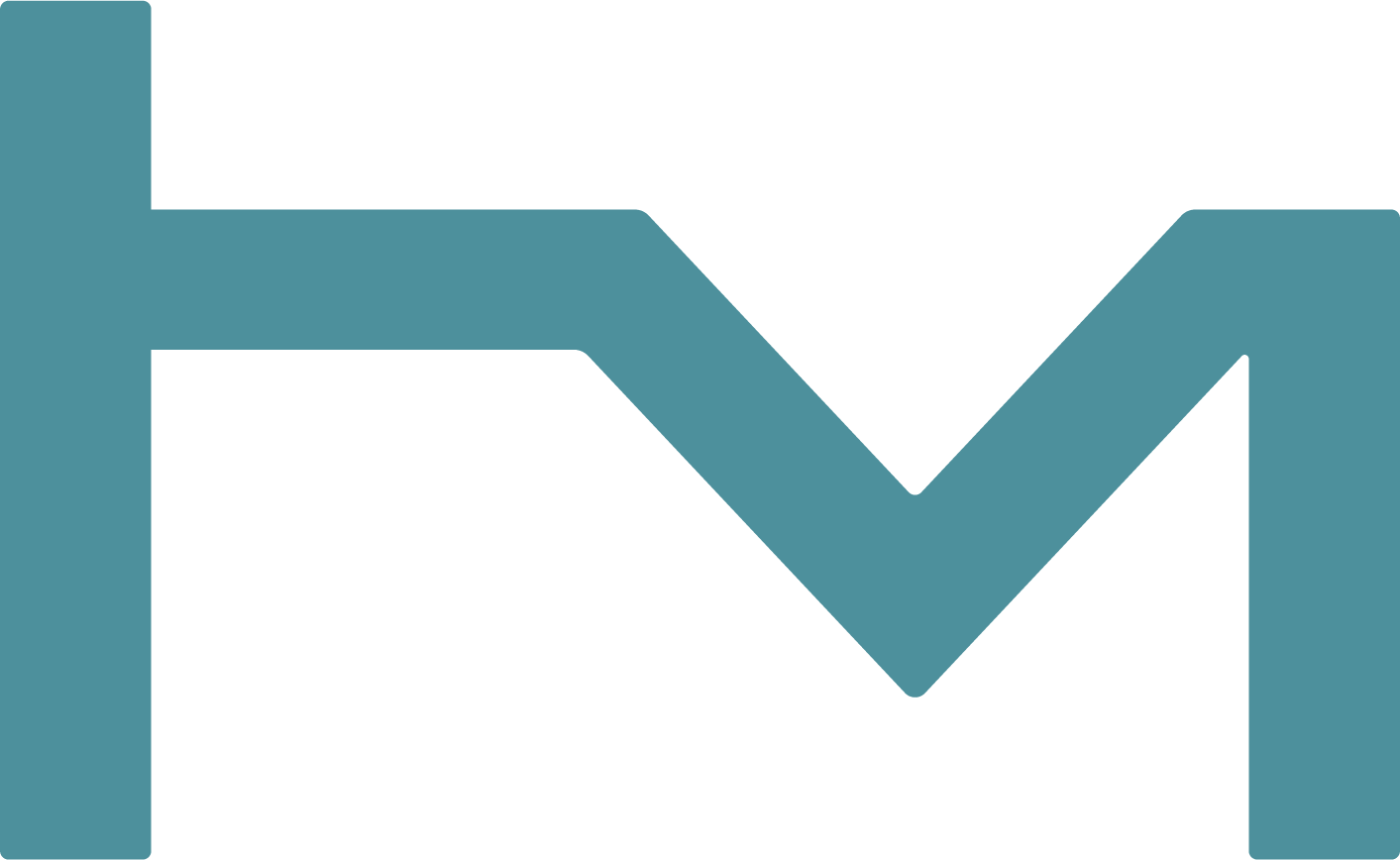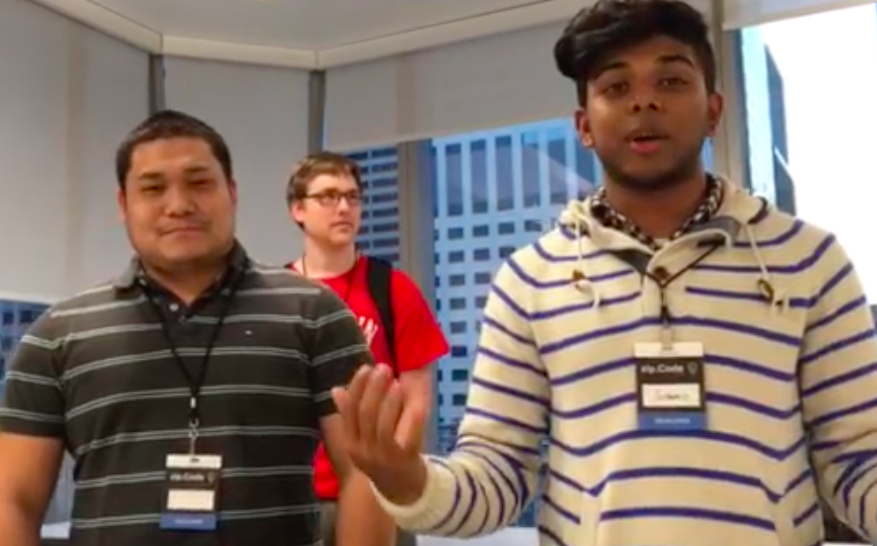Holmes, besides having the best name of Zillow Group’s inaugural zip.Code event, took home the people’s choice title for its mobile app that allows consumers to find homes using augmented reality. It was one of the event’s seven winning teams.
The six-person group beat out 33 others who participated in this weekend’s event at the tech giant’s San Francisco offices in the audience choice category, and pocketed $5,000 for the honor.
The Holmes coders were among more than 100 that participated in the all-night event, powered by the hacker staples of pizza and Red Bull and some hacker rarities furnished by a more-than-stocked Zillow Group kitchen: M&Ms, trailmix, energy bars, sparkling water (in multiple flavors), soda, fruit ….
The coders were drawn by the opportunities of exposure, experience, the possibility of cash and access to Zillow Group’s abundant data and the normalization engine of its subsidiary, Retsly, which optimizes MLS and other data for developers.
The data coders had access to:
 For all data they had access to go here .
For all data they had access to go here .
The seven zip.Code winners were:
- Best use of MLS data winner: AbleHome, $5,500. AbleHome pulls out handicap accessibility features — ramps, disability parking, whether master bedroom is on the ground floor — and bakes them into a home search. The platform also assigns different weights to each feature and calculates an overall handicap-friendly score for a home. Team members: Navya Gattupally, Siddhartha Bhargava, Stan Dong, Genki Sugimoto, Heather Hargreaves.
- Best use of MLS data runner-up: Curbsight, $3,000. Curbsight is a mobile app that helps consumers keep their open-house photos organized by geo-tagging users’ photos of homes they tour and automatically storing them in folders for each. It was developed by Auction.com developer John Huang (he was not representing his firm at the event), solving a problem, he said, that had plagued him for some time. In his own home search, he and his wife continually got confused about which houses they were discussing; his app will help that. Huang was team of one.
- Best use of public records data winner: CompHomes, $5,500. CompHomes allows homeowners to monitor events that may change their home’s value such as sales data of nearby homes, tax assessments, number of active listings in the market, etc. Built as a solo project by Damon Pace.
- Best use of public records data runner-up: Real Deal, $3,000. Real Deal is designed to help investors look for real estate opportunities in off-market homes. By assessing divorce, trustee, mortgage info, deed activity and other data, Real Deal assesses which homes may be more receptive to an offer. (Reminds me of ReboGateway a bit). Team members: Jonathan Spinetto, Jad Meouchy, Suzanne Borders.
- People’s Choice winner: Holmes, $5,000. Holmes allows consumers to hold their phone up to a listing and see nearby homes on the screen, with the ability to filter by a variety of selections, including school attendance zone boundaries, restaurants, price trajectory of the neighborhood and more. (Compare to HomeSnap). Team members: Jing Rong Lim, Phil Reasa, Celso Endo, Sritam Patnaik, Bernardo Avancena.
- People’s Choice runner-up: Team Re/Max, $3,000. Team Re/Max built ListHound, a tool that helps agents track their listings across all the myriad sites that characterize the digital age. If a status is wrong on one site, the app alerts the listing agent; if price not updating, alerted again. See more in the video below. Team members: Re/Max of Michigan’s tech director Dan Troup, Stephen Shivers of Re/Max of New Jersey, Nipun Goel of Re/Max Integra.
- Best Zillow Group employee project, Sea Level, $1,000. Sea Level topographically depicts sea level rise over the years against MLS-sourced listings data to highlight the phenomenon and to help homebuyers select homes accordingly.
The five judges analyzed each project based on usefulness (30%), innovation (25%), integration (does it use Retsly’s listings API?, 25%) and functionality (does it work?, 25%). The judges were:
- Alex Perriello, CEO of Realogy’s franchise wing, Realogy Franchise Group.
- Greg Robertson, publisher of industry insider blog Vendor Alley and co-founder of W&R Studios, maker of the popular MLS tech CloudCMA.
- Lynette Keyowski, executive director of Okanagan-Mainline Real Estate Board in Canada.
- Jeff McConathy, vice president of engineering at Trulia.
- Brad Griffith, CEO of Gametime, an app that helps fans find deals on last-minute tickets to sports games.
Zillow Group’s no stranger to hackathons. It holds them internally for a week each quarter, setting its vast engineering teams free from their day-to-day duties to dream wildly and big. Some of those fantasy efforts turn into products — for example, Trulia’s heat maps.
The real estate behemoth is also spreading its feelers wider and deeper into the real estate startup world, with events like this one and affiliations with real estate accelerators, such as Chicago-based ElmSpring and New York City-based MetaProp NYC.
Retsly, the Vancouver-based company focused on taking disparate MLS and other data and optimizing it for use by coders, has “hackathon” in its blood, too. In late 2013 — before Zillow snapped it up in mid-2014 — the firm held a similar event at the National Association of Realtors’ 2013 annual meeting in conjunction with real estate brokerage and franchise giant Realogy.
Several coders I spoke with before the event were hesitant to participate, despite the opportunity to work with all the data and the possibility of exposure and cash, because they were wary of giving away their ideas and tech that the giant could turn its own talent on to.
That didn’t stop dozens of coders from showing up and dreaming up some cool real estate products.
One takeaway, if no others: the real estate industry should figure out how to open its data to the massive creative energy this event shows is out there — consumers, agents, brokerages, everyone, would win.


